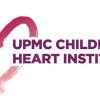
UPMC Children's Hospital of Pittsburgh Center for Complex Transposition Symposium
Learning Objectives
Describe the pathophysiology of Transposition of the Great Arteries (TGA), including the abnormal connections of the aorta and pulmonary artery.
Recognize the signs and symptoms of TGA in newborns and infants, distinguishing them from other congenital cardiac conditions.
Explain the diagnostic modalities available for confirming the diagnosis of TGA, including fetal echocardiogram, echocardiography, and cardiac MRI.
Demonstrate effective communication skills in discussing the diagnosis, treatment options, and long-term management of TGA with patients and their families.
Collaborate effectively with interdisciplinary healthcare teams involved in the care of individuals with TGA, including pediatric cardiology, neonatology, and cardiac surgery.
Appropriately refer infants with suspected or confirmed TGA to specialized pediatric cardiac centers for timely evaluation and intervention.
Facilitate smooth transitions of care for individuals with TGA from pediatric to adult cardiology services, ensuring continuity of care and follow-up.
Additional Information
| Attachment | Size |
|---|---|
| 467.68 KB |
Program Directors:
Laura Olivieri, MD, FAHA, FSCMR
Associate Professor of Pediatrics
Director, Noninvasive Cardiac Imaging
Heart Institute at UPMC Children’s Hospital of
Pittsburgh
Victor O. Morell, MD
Eugene S. Wiener Endowed Professor and Chair of
Pediatric Cardiothoracic Surgery
Chairman, Dept CT Surgery
University of Pittsburgh Medical Center
Surgeon-in-Chief, CHP
VP & Strategy Officer, UPMC-HV
FACULTY DISCLOSURE
All individuals in a position to control the content of this education activity have disclosed all financial relationships with any companies whose primary business is producing, marketing, selling, re-selling, or distributing healthcare products used by or on patients. All of the relevant financial relationships for the individuals listed below have been mitigated.
Mark G. Hazekamp, MD, PhD: Consultant- Teijin Company, Japan
No other members of the planning committee, speakers, presenters, authors, content reviewers and/or anyone else in a position to control the content of this education activity have relevant financial relationships with any companies whose primary business is producing, marketing, selling, re-selling, or distributing healthcare products used by or on patients.
DISCLAIMER STATEMENT The information presented at this CME program represents the views and opinions of the individual presenters, and does not constitute the opinion or endorsement of, or promotion by, the UPMC Center for Continuing Education in the Health Sciences, UPMC / University of Pittsburgh Medical Center or Affiliates and University of Pittsburgh School of Medicine. Reasonable efforts have been taken intending for educational subject matter to be presented in a balanced, unbiased fashion and in compliance with regulatory requirements. However, each program attendee must always use his/her own personal and professional judgment when considering further application of this information, particularly as it may relate to patient diagnostic or treatment decisions including, without limitation, FDA-approved uses and any off-label uses.
In support of improving patient care, the University of Pittsburgh is jointly accredited by the Accreditation Council for Continuing Medical Education (ACCME), the Accreditation Council for Pharmacy Education (ACPE), and the American Nurses Credentialing Center (ANCC), to provide continuing education for the healthcare team.
Physician (CME)
The University of Pittsburgh designates this live activity for a maximum of 4.0 AMA PRA Category 1 Credits™. Physicians should claim only the credit commensurate with the extent of their participation in the activity.
Nursing (CNE)
The maximum number of hours awarded for this Continuing Nursing Education activity is 4.0 contact hours.
Physician Assistant (AAPA)
The University of Pittsburgh has been authorized by the American Academy of PAs (AAPA) to award AAPA Category 1 CME credit for activities planned in accordance with AAPA CME Criteria. This activity is designated for 4.0 AAPA Category 1 CME credits. PAs should only claim credit commensurate with the extent of their participation.
Other health care professionals will receive a certificate of attendance confirming the number of contact hours commensurate with the extent of participation in this activity.
Available Credit
- 4.00 AAPA Category I CME
- 4.00 AMA PRA Category 1 Credit™The University of Pittsburgh School of Medicine is accredited by the Accreditation Council for Continuing Medical Education to provide continuing medical education for physicians.
- 4.00 ANCCUPMC Provider Unit is accredited as a provider of continuing nursing education by the American Nurses Credentialing Center’s Commission on Accreditation
- 4.00 Attendance
This program will be free of charge for all participants. Registration is required.
Participation by all individuals is encouraged. Advance notification of any special needs will help us provide better service. Please notify us of your needs at least two weeks in advance of the program by emailing [email protected]
For more information, please contact Drew Berkhoudt at [email protected]

 Facebook
Facebook X
X LinkedIn
LinkedIn Forward
Forward